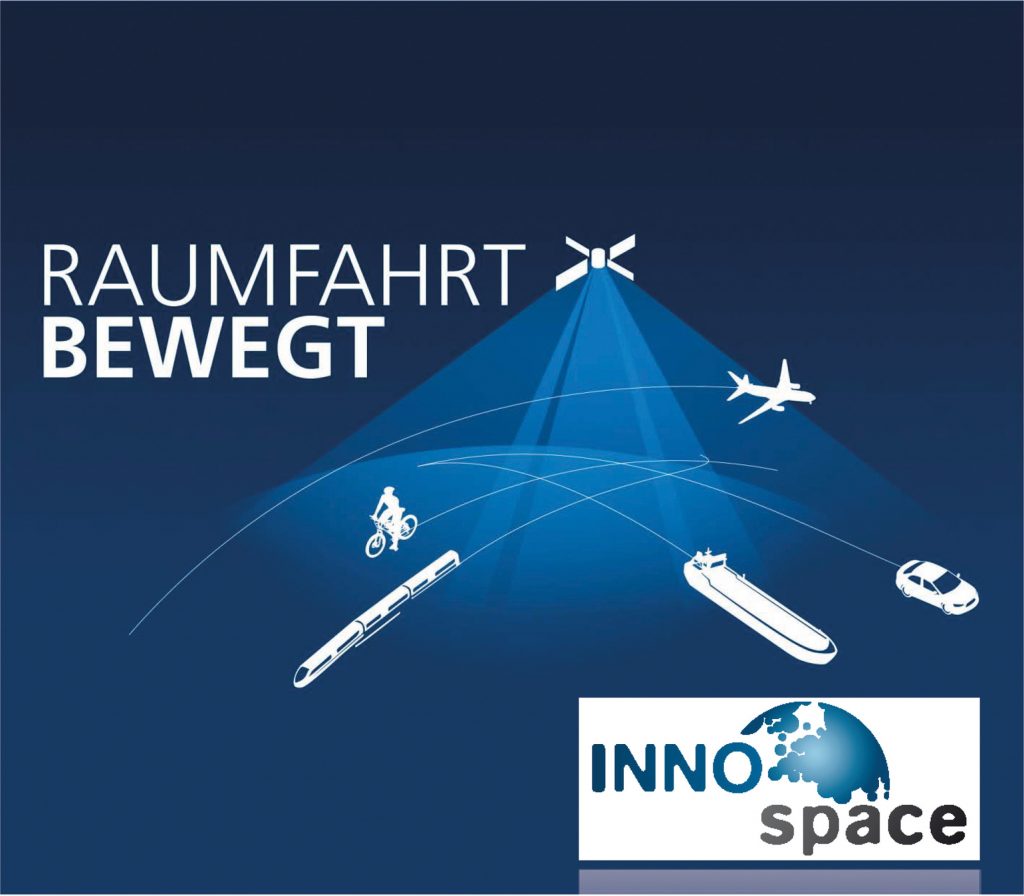Cross-sectoral and innovative
The mobility of the future will be digital, networked and partially autonomous. For this to happen, it will be necessary to move large volumes of data quickly, securely and regardless of location. The services, technology developments and infrastructure components – such as global Earth observation, communications and navigation satellite constellations – offered by the space sector provide a basis for strategic networking with the mobility and logistics industries. The ‘Space makes a difference!’ initiative from the German Federal Ministry for Economic Affairs and Energy (BMWi) and the DLR Space Administration was launched in 2017 in order to promote and structure this collaboration.
The inaugural INNOspace Masters competition for companies/SMEs, universities, non-university research institutions and startups was held in 2016 with the motto ‘Satellite 4.0’. The DLR Space Administration hosted the event on behalf of BMWi, in partnership with ESA BIC Bavaria and Darmstadt, as well as Airbus Defence and Space. It was organised by the Anwendungszentrum GmbH Oberpfaffenhofen (AZO). The purpose of the competition was to identify ideas for generative manufacturing technologies, new value chains, intelligent components and the standardisation of processes and interfaces in the context of the New Space Economy and Industry 4.0. The competition included three categories: the pre-competition phase, the startup phase and the deployment/integration phase.
Sergio Montenegro and Tobias Mikschl from the Computer Science Department at Julius Maximilian University of Würzburg were overall winners of the competition and they also won frst prize in the category ‘DLR Space Administration Challenge’. With their Skith project, they developed the world’s frst wireless satellite. Until now, all the individual components of a spacecraft had to be connected to one another via cables. Instead of these cables, Skith uses miniaturised, high speed, real-time radio modules with short ranges. This reduces design effort and costs while increasing the satellite’s reliability and flexibility.
German Aerospace Center (DLR)
Franziska Zeitler · E-Mail: franziska.zeitler@dlr.de · DLR.de/en
